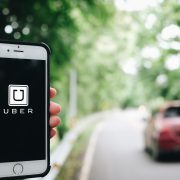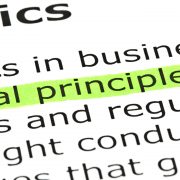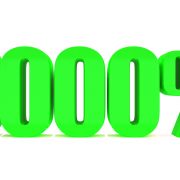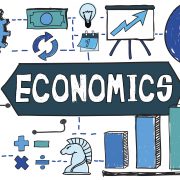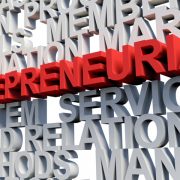Here at the Center For Individualism, we have consistently encouraged the idea of 100% economics and zero percent politics. What does this mean to an individual aiming to design a life that’s well-lived?
Focus your life on value creation.
Creating value is the what the science of economics is all about. You, your family, your community, your country and your civilization all thrive when you create new value that didn’t previously exist. There’s a simple-to-comprehend process of value creation:
- You find something that needs to better: someone is dissatisfied, someone is sad, someone is disappointed, someone doesn’t like the quality of a product they bought or the experience of a service they received. By exercising empathy, you can understand how they feel.
- You imagine a future in which this dissatisfaction is removed. In this future, you comfort the sad person, you restore the faith of the disappointed, you design a better product, you deliver a better service.
- You implement what you imagine. The recipients of your action feel better – they are more grateful, happier, more trusting, more satisfied, and better served.
If you make this your life, you too will feel better, feel purposeful, and find meaning. Follow this process all the time. It’s called economics.
Do it entrepreneurially.
So far, our process might sound like altruism. The difference between altruism and economics is that, in economics, you get paid for creating value. You aim to get paid as much as you possibly can, because that means you are constantly creating more and more value for others. In fact, you create much more value than you get paid for, because people pay you less (usually in the form of money) than the value they receive from you. That’s why they make the deal – they get more value than they pay for. If they pay $10 to buy your home-made beef jerky, it’s because they’d rather have the beef jerky than the $10, which means they value the beef jerky at more than $10.
You only make the deal (if your economic calculation is correct) because the beef jerky cost you less than $10 to make (and to package and to deliver). It also cost you less than any other alternative activity you could have undertaken. You have made an entrepreneurial profit. And you can use the $10 to create more value by making more beef jerky.
Both parties are happy. One, the entrepreneur, has created the possibility of a lifelong stream of beef jerky earnings.
But you don’t have to start a business or run a side hustle to create value. Make it a principle of your life if you’re a job holder in a firm, or a parent at home, or a volunteer at a 501c3. Your reward can be non-monetary: make a psychic profit rather than a financial one. But always create value. The only places you can’t do this are working for the government or working for a political campaign. These are value destruction activities.
Collaborate.
If you enjoy the beef jerky gig, you’ll collaborate with others to expand and grow it. If you enjoy parenting, you’ll collaborate with neighbors and educators and coaches to create more value for your child. Economics is entirely collaborative. Collaboration creates more value. Forget everything you’ve read about competition. Entrepreneurship is sharing information – when you learn what is dissatisfying to some potential customers, they’ve given you useful information. When you return with a superior product or service, you’ve repaid that information with interest.
You’ll observe others who are doing a good job of creating value and you’ll try to learn from them and adopt their practices and techniques, and then try to improve on them to create even more value. This collaborative, adaptive learning is what advances individual achievement and social progress. It never stops. When we are collaborating, we are always advancing. We are co-creating value.
Go local, go community.
The best way to build an empathic, entrepreneurial, collaborative system with you at the center is to start small and local. First, make sure your family feels like you are creating value for them. Then turn your attention to your nearest group. This could be your customers, co-workers, or neighbors. Make sure you are delivering value to them. Widen that group when you can, but don’t reach further than those you can please. Don’t disappoint anyone to whom you’ve promised value.
Self-reliance, self-resourcing, lifelong learning.
Try to be dependent on no-one. Every one of us is unique and we all have practical knowledge and skills that no-one else can match or reproduce. Everyone’s different and everyone is their own species. Put this uniqueness to work. When you do so in a collaborative team with others who are equally different and unique, you create a dynamic where no-one’s in charge, but everyone is advancing.
Self-resourcing means examining what you know, who you know and what’s at your disposal to utilize in value creation: what knowledge, which relationships, which assets that you own, including your own thinking processes as well as productive resources like computers, phones, and software. We’ve all got immense resources at our disposal. There’s a supercomputer in every pocket, and a super idea in every mind. There is never any justification to feel short of resources.
One of the greatest resources, and the number one source of competitive advantage, is lifelong learning. Connect to knowledge, ask questions, try out new sources and techniques, always be learning. Be different and better tomorrow than you are today.
Eschew politics.
If you think and act this way, you are thinking and acting economically. Economics is the discipline of creating new value, advancing knowledge, increasing personal productivity and bringing success to as many people as you can. It’s collaborative, friendly and the ultimate force for good. Economics embraces everything you do in life, and everything you need in life.
Most especially, there is no need and no room for politics in the life of economics. Politics is everything that economics opposes. It’s antagonistic, negative, and destructive. It creates nothing new. It either constrains innovation, or seizes the productive output of innovation in order to redistribute it. Politics hates individual initiative, while economics consists entirely of individual effort, imagination and productivity.
Choose the life you prefer. The economic life is the best choice.
